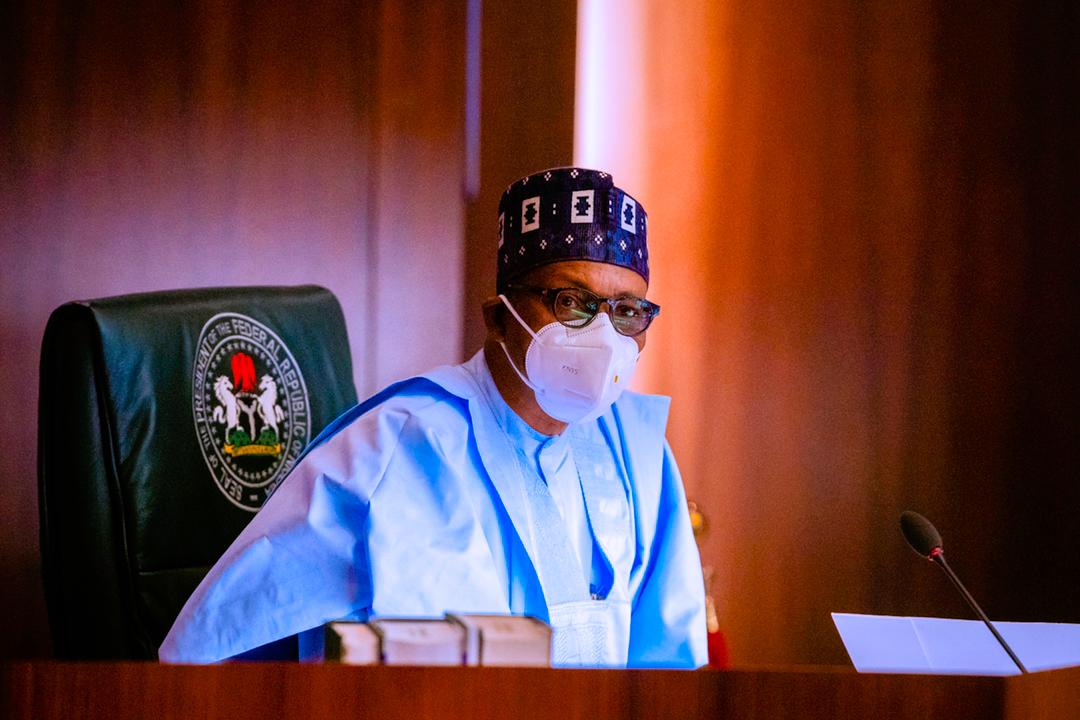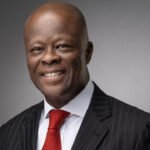Some Borno elders, leaders of thought and security experts have countered the National Security Adviser, retired Major General Babagana Monguno, who said Nigeria will not seek the services of mercenaries to fight the Boko Haram terrorists.
They said it would be difficult to end the almost 12-year-old insurgency without engaging mercenaries as was done ahead of the 2015 general elections.
General Monguno on Thursday ruled out negotiation with bandits and engagement of mercenaries in the fight against insurgents and other security breaches in the country, saying Nigeria had enough military power to address its security challenges.
He stated this during the third edition of the Villa media briefing at the State House, Abuja.
Monguno, while reacting to a question on renewed calls by the North East governors on the federal government to engage mercenaries to defeat the Boko Haram terrorists, said: “The president’s view and the directive is that we will not engage mercenaries when we have our own people to deal with these problems.
“We have the personnel and resources, and the president has given a new lease of life to the armed forces.”
Daily Trust reports that Governor Babagana Zulum of Borno State, who doubles as the chairman of North East Governors Forum, had on Wednesday, March 3, called on the federal government to bring in mercenaries to help end the Boko Haram menace.
According to Zulum, “As it is now, especially in Borno State, violence being perpetrated by the insurgents seems to be on the increase, both in scope and viciousness, and it has become a matter of tactical necessity for the new service chiefs to devise new offensive strategies to counter the current attacks and forestall any future attacks.
“Undoubtedly, the commitment of our military to the war against the insurgency is unquestionable and their determination to succeed is undeniable, as they have considered and acted upon a full range of options to deal with the insurgency.
“However, with the current escalation of deadly attacks by the terrorists, the various courses of action being pursued seem to have some limitations in terms of the expected impact; hence the need for a new set of pragmatic and result-oriented initiatives to completely subdue the terrorists and ultimately end the insurgency.
“The government should also seek support from neighbouring countries such as the Republic of Chad, Cameroon and Niger with a view to providing a joint action that will look into the possibility of ending this crisis.
“The federal government has to look into the possibility of involving mercenaries with a view to ending this insurgency because it seems that the commitment is not there.
“Therefore, for us to end this insurgency, we must be committed enough, we must bring in external support to ensure that mercenaries are hired to end this insurgency,” he said.
‘No Negotiation with bandits’
Monguno also said any form of negotiation with bandits would portray the government as weak and incapable of dealing with the challenges of insecurity across the country.
The NSA, who said the government will deploy all necessary force to eliminate terrorists and bandits, stressed that the government would not succumb to blackmail.
He said: “The government is tackling the problem of insecurity. We have said many times that there are two phases in solving this problem – the soft approach, talking, negotiating and so on and so forth.
“While the government is not averse to talking to these entities, these human beings, I have to be very honest the government has to apply its full weight – that force that is required – because you can’t even talk with people who are unreliable, who will turn around to do a different thing and people who will continue to hurt society.
“So, basically, what the government wants to rely upon is to deal with this issue by using all the assets – military assets, intelligence assets – to eliminate these people.
“The new direction of the government is to come out with its full force. Government is not going to allow itself to be blackmailed by any group or individual who thinks he can hide under the surface and then use proxies to deal a bitter blow on innocent people.”
He also said: “We are also focusing on the associated dimensions of the banditry and terrorism: illegal drugs, the flow of small arms and light weapons, and illegal mining in places like Zamfara.
“These are some of the scenarios fuelling the violence and we are already tackling them decisively.”
Mercenaries not new to Boko Haram fight
Our correspondents recall that few days to the February 14 presidential election of 2015 which was moved to March 28, the then federal government under the leadership of Goodluck Jonathan deployed hundreds of mercenaries to reclaim territories in the North East.
It was learnt that at the time, Nigeria brought in hundreds of mercenaries from South Africa and the former Soviet Union to help Nigerian troops reclaim many local government areas in Borno, Yobe and Adamawa states that had been seized by the Boko Haram under the leadership of Abubakar Shekau.
The mercenaries reportedly came in with a new strategy and fighting equipment, a development that turned the tide against the Boko Haram terrorists within just six weeks, paving the way for a peaceful election that saw Muhammadu Buhari emerging as president.
Though the opposition All Progressives Congress (APC) condemned the postponement of the presidential election in 2015, the decision gave the then ruling Peoples Democratic Party (PDP) tactical successes in the war front but not at the polls as many states and National Assembly seats moved to the APC.
Though there was no official confirmation then that mercenaries had been deployed, those living in the North East, especially in Maiduguri, confirmed their presence.
In an interview with the Voice of America (VOA), President Goodluck Jonathan said two companies were providing “trainers and technicians” to help Nigerian forces. He did not name the firms, or the nationalities, or gave numbers.
However, though Boko Haram was unable to continue with its territorial conquests after the change of government, its fighters have continued to give Nigerian troops sleepless nights to date.
Analysts attribute the “setbacks” to the departure of the mercenaries and the near-collapse of the Multi-National Joint Task Force (MNJTF) few months after the new government took over.
‘We can’t exit insecurity without mercenaries’
A Borno State elder has faulted the decision by the federal government that mercenaries would be not be engaged to fight the Boko Haram insurgents.
He advised those in the position of authority to forget about public outburst and do the needful.
The elder, who does not want to be named, said the success recorded in the fight against insurgency was recorded when the South African mercenaries were engaged.
In a phone interview, he said President Buhari should not renege in his promise to end the insurgency.
“When you send our soldiers abroad, who are those training them?
“Are they not the same people that were brought as mercenaries?
“What we are saying is that they should bring these people to join forces with our men to finish the insurgents.
“We are not saying that they should compromise the interest of this country. What he (Monguno) said was his personal opinion and not the position of the government, I think.
“When the mercenaries were brought in 2014, we all witnessed what they did within the shortest time.
“Before the South African mercenaries were brought, the insurgents were everywhere in Maiduguri after hoisting their flags in many towns.
“But when they (mercenaries) came, they worked with our security agents and the JTF operatives and that was why we had successes then,” he said.
He added: “There is nothing wrong with this. Countries are engaging mercenaries.
“It is not a sign of weakness or incapacitation. There is nothing demeaning in engaging foreign mercenaries to help us. What we want is for the war to finish.
“Why did we engage the Chinese to revive our railway transport?” he asked, wondering why Nigeria did not engage the countless engineers in the country for the projects if it believes in self-sufficiency.
On his part, a public affairs analyst, Abubakar Mohammed Kareto, urged the federal government to do the needful and engage foreign mercenaries so as to curtail the rampaging deadly groups.
“Nigeria has been fighting this war for over a decade now but the strength of Boko Haram keeps growing like a wildfire. We still have towns and villages believed to be strongholds of the insurgents.
“These places have neither civilian population nor a military presence, and allowing terrorists to stay long freely in a defined location will further endanger safe places.
“Nigeria needs to have fighting forces with extensive experience in conducting mobile operations in hostile environments like the North East; those who can also provide immediate access to airpower.
“These services can only be rendered by mercenaries. We need a quick and immediate solution to curtail the violence if the Boko Haram,” he said.
Also speaking, a security expert, Salihu Bakhari, said it is time to end Boko Haram and other security problems so that Nigeria would focus on human development.
“It would be difficult to ascertain how much was expended in the last 12 years or thereabouts in terms of human and material resources.
“Therefore, I think it would not be wrong to seek foreign support. Of course, it would be suicidal for the NSA to come out openly and admit that they would bring in foreign mercenaries but then, I pray they are doing something underground.
“We have good soldiers and commanders in Nigeria and there is no doubt about it; but going by the theory of exhaustion and fatigue, it will not be wrong to get a helping hand for them,” he said.
NSA speaks our minds – Officers
An officer, who did not want his name in print, said NSA Monguno spoke the minds of all serving military personnel.
According to him, Nigerian troops had the capacity to handle the terrorists and other criminal elements disturbing the country.
He said instead of bringing foreign mercenaries, the federal government should address some of the challenges confronting the troops.
When asked to mention the challenges, he said the military authorities were aware.
Another officer said, “Government should stop paying ransom to terrorists.
“You can see how heavily these criminal elements are being paid by these same government officials any time they kidnap.
“This is not the way to go. This is not how to defeat banditry and terrorism but I know we can defeat them.”
By Ismail Mudashir, Muideen Olaniyi, Idowu Isamotu (Abuja) & Tunji Omirin (Maiduguri)

 Join Daily Trust WhatsApp Community For Quick Access To News and Happenings Around You.
Join Daily Trust WhatsApp Community For Quick Access To News and Happenings Around You.


